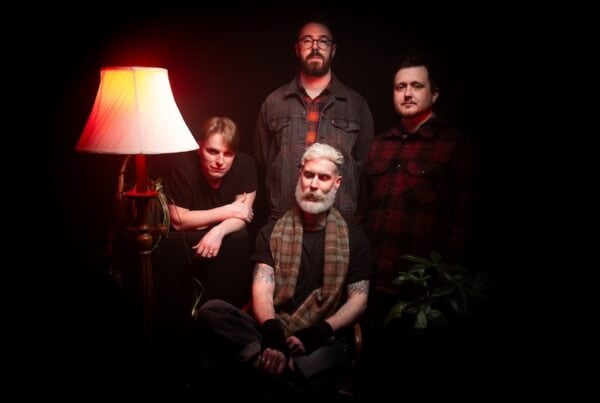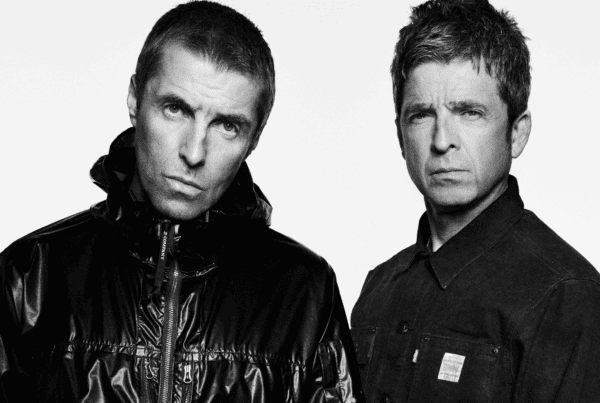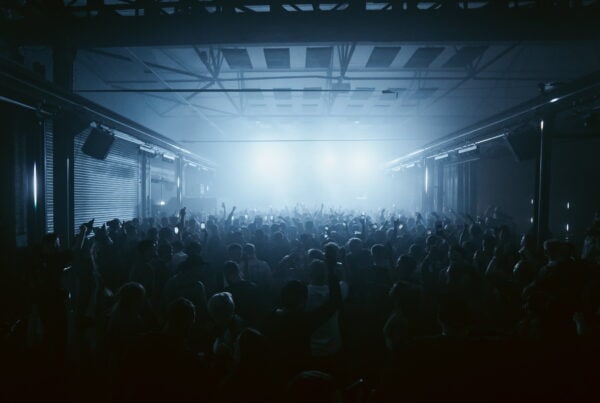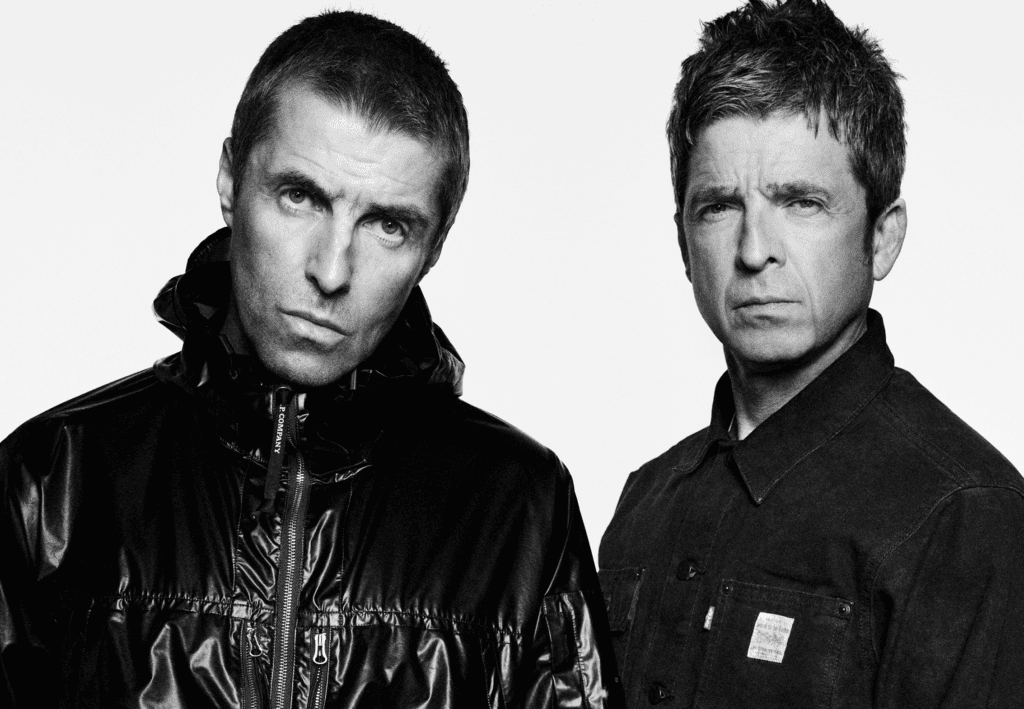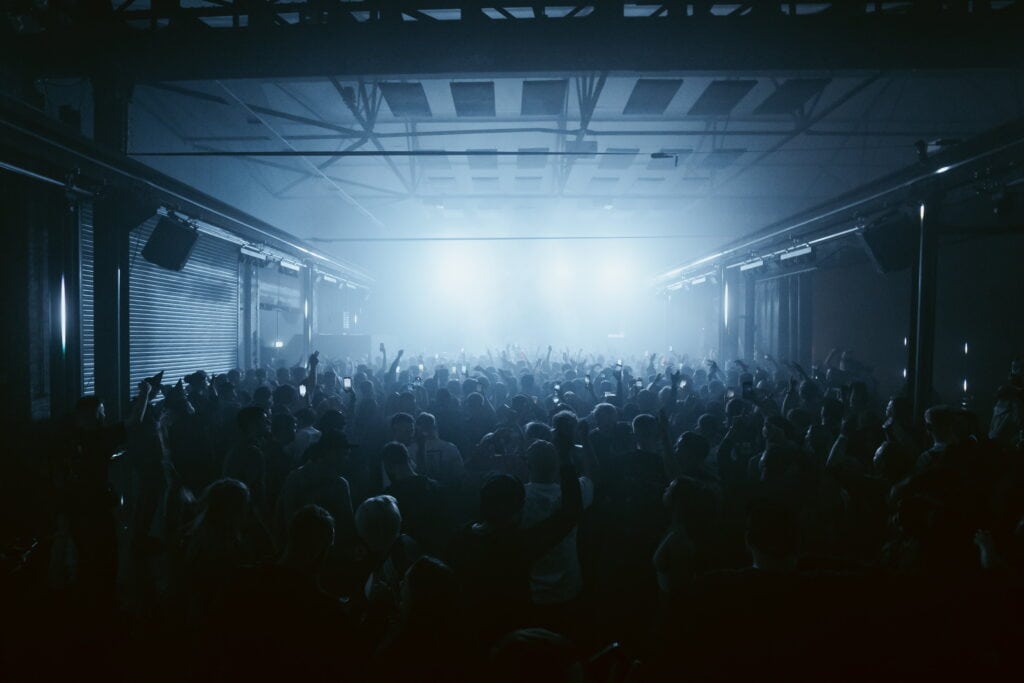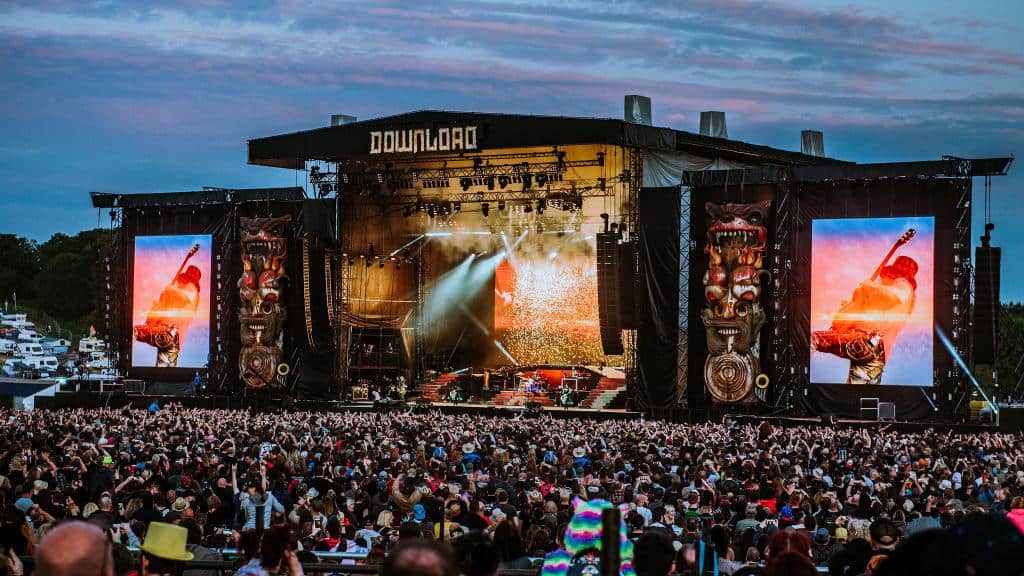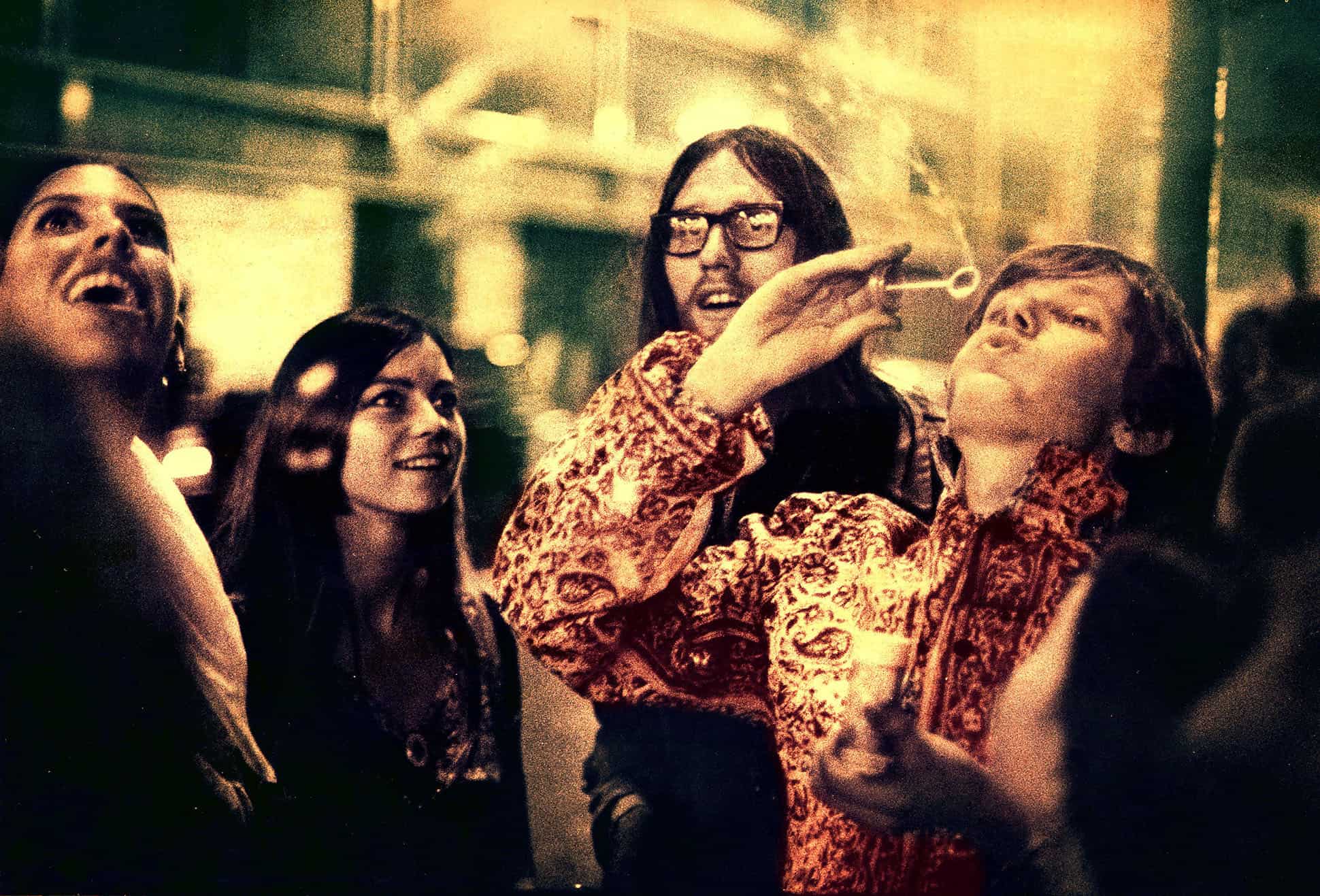
Make music! Not war! Photo credit: Chris Morris
Many people throughout music circles, and indeed general music discourse, hail the 60s as the “best era” for music as a whole, or at the very least rock and pop music. Now, while I myself think the idea of a period in time being better than any other is a frankly ridiculous assertion, that’s a whole other messy argument for another day. Instead, what I’m gonna do here, is play into the hype a little bit, and give you a list of 6 of my favourite albums from that magical decade. I’ll not only be talking about stuff that defined the sound of the 60s that we know today, but also stuff that pushed the envelope of musical experimentation, and thus are revered now as being at the forefront of the cutting edge (not that they all weren’t at the time, incidentally). So, potentially controversial opinions abound, here we go.
Before we start officially though, I’d like to give shoutouts to a couple of albums that I think are worth a mention, but I didn’t end up including for whatever reason. The first would be Pink Floyd’s 1967 debut ‘Piper at the Gates of Dawn.’ The quartet’s first and only Syd Barrett fronted album is undeniably a milestone in psychedelic rock. It brought those colourful, mind-bending, multi-faceted sounds into public consciousness, and sounded great doing it, with all time classic Floyd tracks on here like ‘Astronomy Domine’ and ‘Interstellar Overdrive.’ The only reason I didn’t include it is really because I don’t have enough experience with, or personal investment in it for me to want to put it on here, because I feel like if I did, I’d be somewhat pulling my praises from the air, not my own personal reactions. The same sentiment could also apply as it happens to any of the three Jimi Hendrix Experience LPs.
A second honourable mention would go to the debut Soft Machine album. I do love a lot of that Canterbury Scene jazz-rock type stuff, Henry Cow perhaps being a prime example, and Soft Machine were definitely one of the big dogs in that movement. As far as the debut LP goes, while there are some absolutely fantastic key tracks like the opener or ‘So Boot If At All’, some of others are either too short or mellow to leave much of an impression beyond “huh, cool”, or they just don’t quite have that spark or firepower that others do. By all accounts it is still a pretty impressive album, so I would recommend giving it a listen, but in my mind, they didn’t truly reach their peak until their third outing, which, unfortunately for this article, was released in June 1970. Still though, Soft Machine, pretty good. Right! Onward for real this time
The Monks – Black Monk Time (1966)
Punk, I would say, has fairly well defined boundaries now, musically and culturally speaking. However, I also feel like if you really want to understand punk music, you don’t just start in 1974 or so. After all, there are some really important albums that forecast the shape of punk to come. While it may not be obvious, this is definitely one of them, and crucially, it’s also great. There are many reasons why I think it’s so great, but it’s easiest to start with the sound. Being greatly influenced by the 1960s UK “beat” movement, the band and their management sought to take this sound into more repetitive, noisy, Krautrockian territory. How did they achieve this? Many ways. Larry Clark’s organ playing for one is so manic and blaring, it ends up cutting through the mix like an air raid siren, while somehow, at the same time, being absolutely irresistible. Next up, Dave Day chose to swap his electric guitar for an electric banjo, giving way to an entire new paradigm of sound. At one time it could be wiry and sharp with those deliberate, blunt downstrokes, while at the next moment it could be either bright and searing, or just as easily muddy and dirty, the band themselves being an early exponent of feedback, which along with the organs, gave them a serious sonic edge. The work of the rhythm section of Eddie Shaw and Rodger Johnston cannot be understated either. Rodger’s drums aren’t quite the steady, shuffling rhythmic accompaniment you found in most popular contemporary music of the time. Instead, he really takes the word “beat” pretty literally here, resulting in grooves that are either primally blunt, or barrel toward you at ruthless speed. Concurrently, Eddie’s bass switches similarly from a brilliantly expressive, elastic, and flexible style of bass playing that I absolutely love, or it can come out as s great, distorted, crunchy, muddy undertone, either of which work great at times. The final element are Gary Burger’s vocals, which are less melodious, and more of a great, fantastic kind of unhinged caterwauling that paints the already chaotic music underneath in the absolute best way. This delivery style in context of typical lyrical themes of love, heartbreak, and jealousy, gives way to the songs often sounding much more darkly sarcastic, cynical, or biting than their contemporaries. Mix that all together, and you have The Monks.
The songs themselves are fantastic too obviously. The opener ‘Monk Time’ takes the standard “band theme tune” idea and essentially lights it on fire, with hyperactive organ runs, military sound effects, and Gary shrieked vocals full of anti-war protests and weird James Bond references, all wrapped up with a very catchy group vocal. Other fast paced tracks include Boys Are Boys’, AKA “what-would-be saccharin love song put through blender”, who’s incredibly simple two-note riff, grinding bass, gruff yet infectious melodies, and bashing groove is maybe the closest to straight up punk on this whole thing, while still remaining characteristically off-kilter. Then there’s ‘Higgle-dy Piggle-dy”, where on top of the drums being positively barreling, there’s another fucking killer organ solo, a great, simplistic, vocal refrain with biting back ups, and an immense, straight up industrial guitar solo. It’s absolute craziness and I love it. There’s also ‘Blast-off!’, which with it’s relentless skittering beat, tense, ascending riff, and sci-fi keys, is the Monks’ brief comment on the space race of the time, which despite not having much in the sense of actual words, makes up for it with the sheer sense of, again, tension and anticipation.
Granted, not all the tracks on the album are as stylistically anomalistic, but even the ones that are more straight ahead seem… different, somehow. Tracks like ‘We Do, Wie Du’, ‘Drunken Maria’, ‘Love Came Tumblin’ Down’, or ‘That’s My Girl’ might seem to be relatively palatable bits of 60s pop rock, and are still great for that reason. ‘We Do, Wie Du’ has a great bassline, and a wonderfully charming, somewhat seaside-esque organ vocal combo, and ‘Drunken Maria’ has some doubtlessly pleasant, jaunty melodies up its sleeves, while ‘Love Came Tumblin’ Down’ has some very nice, summery guitar and organs parts, impressive drum fills and cool two-part harmonies, and ‘That’s My Girl’ is a fun-loving stomp to round things off. Thing is though, there are little things about these tracks, like the manic, crazed vocals, searing organs, uneasy melodies, or unapologetically noisy, metallic guitars, that put them in a kind of uncanny valley zone, where as superficially “normal” as they are, all have truly unique, one-of-a-kind qualities. The same idea would apply to “Oh How To Do, Now’ too if the ending wasn’t so purely mental.
Then again, there are also a number of key tracks that just have something pretty damn evil going on, for lack of a better word. The first taste you get of this is ‘Shut Up.’ The positively thumping drum beat and accompanying sharp guitars are already pretty intimidating, but when an eerie, church-like organ, and seemingly bitter, dismissive lyrics enter the picture, there’s something that feels genuinely dark about it. Then again, some super loud and crazy solos and absolutely brilliant bass playing that arrive later on certainly help to lighten the mood. It’s even more pronounced on ‘I Hate You.’ The drums, for one, are absolutely pounding and animalistic, not to mention that the bassline is an absolute beast. Gary’s vocals are at the absolute height of their animatedness, and the vitriolic, sarcastic lyrics are the icing on the cake. Also, while it’s a high bar, these are maybe the best organ and guitar solos on the whole thing. It’s completely and totally demented, but that’s a positive in this case. Similarly brutal and tribal, but in a much different way, is ‘Complication.’ On one hand, it’s actually a pretty damn catchy song. An incredibly simple, yet infinitely hummable riff, memorable vocal refrains, and a very enjoyable drum and vocal break at various times in the track, are just some of its best qualities. At its core though, it’s still an absolute monster. Brought home most so by the utterly thundering rhythm section, it sounds pretty massive that’s for sure, and that’s before you ever consider the sharp banjo strumming, Gary’s wailing, desperate cries, or the savage lyrics about sadness, killing and death from his bandmates. All that together, and you’re left with a track as kind of confusing as it is cool. I don’t think anyone ever said “I’d love to hear a great, catchy, 60s rock song about death”, and yet. And yet…
Looking at the bigger picture, while it might not match perfectly to punk in sound, it’s more than indicative of punk in its approach. It’s often dark, abrasive, and challenging, taking the then popular forms of rock music and hijacking it, creating a sound that’s equal parts memorable, but almost totally alien. So, if you’re remotely interested in experimental music, I think many will agree when I call it a must-listen.
The Doors – The Doors (1967)
I’ll be honest, I’m not entirely sure how I feel about the Doors as an entity. For sure, they were absolutely one of the most preeminent and creative bands in the US psych rock explosion, and just their frontman alone gives them legendary status, along with the other band members being fantastic musicians as well. The thing is, for some reason, it feels like The Doors’ genius, perhaps more than many others, is used by a number of fart sniffing music elitists to assert the idea they “get” or understand “real genius music.” Either that, or I’m just judgemental. All that aside though, one thing that is pretty damn clear, is that this album genuinely does deserve all of its praises, and maybe more, because it is really good, for lack of a better phrase.
Let’s just get the blindingly obvious out of the way first. If all you’re looking for is some super cool, catchy psychedelic rock, you get a fair bit of that here, to an exceptional quality level as well, I might add. ‘Soul Kitchen’ might be my favourite track on the whole LP, although it is a close call. A great, strutting, funky groove is joined by a combo of ultra-soulful, bluesy guitar, and Ray Manzarek’s iconic, bright organ flourishes, and it sounds amazing. Then, once Mr. Morrison’s dramatic croons enter the picture, the sense of swagger it already had in abundance is increased exponentially, and the chorus, and guitar and organ solos, are absolute heaters. ‘Twentieth Century Fox’ is definitely more laid back, but still has all the same great hallmarks. I love a good ride cymbal beat, and this one is yet another brilliant one. Robby’s guitar work has a very enjoyable sense of easy going breeziness to it which is very effective, and to which, again, Ray lays his magical keyboard wizardry all over. Even when the song goes into a slightly more stilted, 60s clap style beat, which is something I would normally hate, they carry it off with so much drama and effortless cool factor, helped no end by another top tier guitar solo. It should go without saying that Jim’s vocals are absolutely the icing on the cake, switching between sultry, dramatic, and emphatic with ease. The song as a whole definitely puts across the idea of a strutting glamour model very well indeed.
Obviously, there are the big hits within this more clear cut, psych niche. ‘Light My Fire’ begins with that unbeatable organ intro, and sifts through so many moods in 7 minutes that it seems like a genuine feat of ingenuity. From uppity, bright, summery psychedelia, to lightly swaying, breezy lounge music, to freewheeling jam band, and even more beside. The whole band does a great job. Robby’s sun-soaked leads are an absolute dream, John Densmore’s incredible drumming gives it a brilliant sense of dynamism and bombast, and Jim’s vocals are at once delicate, melodic, and moody, which is a fantastic combo that works perfectly in the song’s sonic blueprint. Of course, the star though here, is Ray. His organ playing throughout this album is phenomenal, but only a master could take a multi-minute organ solo in the middle of a song, and make every SECOND worth it, which he absolutely does, aided greatly in particular by John’s command of the skins. As if that weren’t enough, straight after, Robby takes a solo of his own, and his guitar parts are truly a slice of pure, Californian bliss. As much as there’s some other brilliant songs up ahead, I take back my comment about ‘Soul Kitchen’, this is my favourite. Speaking of iconic tracks, ‘Break On Through (To the Other Side)’ is undoubtedly an essential song of the era, but one that I have comparatively little to say about. That’s not because I don’t like it though. Quite the opposite. In fact, I’d say with its endlessly hummable, fuzzy riffs, crazy, motoring drum beats, blaring organs (with yet another incredible solo), and unleashed, wild vocals. This is maybe some of the most chaotic and loud garage rock you could find, at least for the next two years (more on that next time). With its consistently high energy levels and great sense of escapist abandon, along with Jim Morrison’s excellent ear for melody coming through loud and clear, means this song exemplifies the phrase “pocket rocket.” Similar praises could be layered at deep cuts ‘I Looked At You’ and ‘Take It As It Comes’, albeit to a lesser extent. The energy or gnarliness levels may not be as high, with them both being very enjoyable, bright and bobbing pop-rock songs. What they do instead though, is take what could be two pretty inoffensive, ‘Do the Twist’ style pieces of 60s chart fodder, but inject them with that signature “Doorsy-ness.” The former, pairs a fairly standard, peppy drum beat, and pairs them with Ray’s effortlessly colourful organ textures, Jim Morrison’s amazing vocal prowess and versatility, and Robby’s lovely, easy going, trippy leads. Boom! Great, simple, super catchy song. ‘Take It As It Comes’ is less energetic to start with, but Jim’s performative, crooning, yet subtly urgent vocals, and Ray and Robby’s melodies having a great, almost eastern raga-like sensibility helps to elevate it that crucial bit higher, with a fitting bombastic climax to boot.
There are some pretty interesting stylistic diversions to make note of though, that, if it wasn’t clear already, prove the doors to be far from one note. The two covers on the album illustrate this pretty nicely. On one hand, “Back Door Man” is a defiant, swaggering piece of classic blues. It has an awesome strutting bassline, unwaveringly sturdy drums, a great little keyboard flourish, and of course, those amazing, classic blues riffs, supplemented by a great solo. Not to mention that Jim’s vocals have that raw, untamed, down to earth quality all great blues does, but with that added dramatic flair of his in the mix too. The band handles it pretty down the line, but does so very well, while managing to maintain distinctive qualities. ‘Alabama Song (Whisky Bar)’ is a total curveball. A number originating from a Burtell Brecht musical, I never thought psych-vaudeville would ever be a thing, and yet it makes complete sense. Sure, the military drums and farty, tuba-style keyboards are a bit cheesy, but it is a musical number after all. Aside from that though, what it does really well is take a delightful drinking shanty with a sense of quirk and theatre, and imbue it with a sense of doom and dread. The way they accomplish this through the use of honky-tonk pianos, jangly percussion, and especially Jim Morrison’s tense and dower harmonies throughout the track is pretty damn effective. It feels like a pub crawl in the uncanny valley almost. It’s almost as if it was made to be used in the ‘World’s End’ movie 45 odd years later.
They don’t skimp when it comes to the quality of the ballads here either. ‘The Crystal Ship’ is wonderfully delicate. The drums carry the melodies along like gentle waves on the sea, which have a pure, dreamlike vibe. Ray’s bright, regal organs soon give way to gorgeous grand piano passages, and Robby’s guitars, while very subtle, do add a lovely bit of texture. The piano solo itself is brilliant, but Jim truly comes into his own here. The sense of drama, emotion, and expertly restrained drama makes you think he could’ve just as easily been the next shiny suited crooner as much as a rock singer. His sense of melody is just impeccable, and his light, dulcet tones are exactly what the track needed to be as transcendent as it is. The phrase “understood the assignment” seems very applicable here. Later on, ‘End of the Night’ has the same, masterfully tactful sonic treatment, but carries a much different vibe. The steady, melancholic groove is the perfect base for Ray’s beautiful, twinkly, music box melodies and Robby’s featherlight, wilting guitars, fostering a truly ethereal atmosphere. Yet, with Jim’s emotive, expressive, downtrodden vocals, and the minor key chord progressions, once again, that undercurrent of creepiness slithers back through. This is only confirmed once Robby’s uneasy and warbly solo gets underway, and the track reaches its dramatic pinnacle, which they’ve pulled off brilliantly time and again already.
Incidentally, the phrase “dramatic pinnacle” almost perfectly describes the iconic album closer, ‘The End.’ This near twelve minute monolith further optimises everything great about the group. That laid-back cycling bassline and eastern influenced guitars are the perfect pairing, which along with the flourishes of tambourine and percussion, again, give it an almost “golden age horror” type sound, with darkness and tension in spades, particularly as the energy levels travel through great peaks and valleys throughout the runtime. Simultaneously, Jim’s beautiful, yet climactic and dramatic vocals, along with Ray’s church organs offer the song a palpable sense of beauty, grand scale, and occasion that it utilises beautifully. Then, as the track draws on and Morrison’s recital of Oedipus Rex’ becomes increasingly frenzied and manic, so to do the instruments around him build to a peak of cacophony and intensity, before being reduced to musical rubble, giving way to a wonderful, cyclical finish. The pure sense of catharsis in this climax is utterly indescribable, and is easily one of the most impressive feats in modern rock. The drama, the scale, the rage, the intensity, it’s all there. The only way I could possibly describe it is that it sounds like you’re listening to the apocalypse happen in real time. That’s fucking cool if you ask me.
So, while I still think my dislike of wankery Doors fans is founded to some degree, I do have to admit by virtue that I’m also slightly hypocritical. After all, at least on a superficial level, I’m heaping much of the same praises onto it those exact hypothetical people do. Beyond a certain point though, you just can’t ignore the truth. Masterfully written and performed, genuinely subversive, and with “wow factor” in spades, it really did pave the way for a psychedelic revolution, which many future bands, including those on this list, took ample advantage of. So, kudos fellas.
Cream – Disraeli Gears (1967)
The trio of bassist Jack Bruce, drummer Ginger Baker, and guitarist Eric Clapton is the stuff of folklore at this point. Forming in 1965, the power trio known as Cream was dubbed the world’s first supergroup and with good reason too. Three musicians at the absolute top of their instruments, busting out super groovy, jazz influenced blues rock, hard rock, and psych rock, what’s not to love? They laid the foundation for heavy metal, and wrote amazing music at the same time. While, controversially, I don’t actually believe they reached their peak until the 2005 Albert Hall reunion, many believe their studio zenith, albeit a very close run contest, to be their second LP, ‘Disraeli Gears’, and with good reason too.
Throughout this album, as you may expect, the guys definitively prove they are far from one trick ponies, by experimenting with a vast array of styles within the rock paradigm. This doesn’t make the album incohesive, far from it, but instead, acts as a great sonically free exploration of everything that made them great. The album starts off on a somewhat atypical foot, with the Clapton fronted ‘Strange Brew.’ Written as a pop song at the request of their producer, it still manages to be pretty killer even then. Jack provides a really great, deep bassline, on which Ginger lays down an absolute masterclass on the drums, laden with great fills. Then, Clapton’s main fuzzed out guitar leads are incredibly catchy, while maintaining that palpably psychedelic energy. It has to be said as well, for someone who didn’t often perform lead vocals at this point, he does a really good job here. Of course, the “pop song arrangement cae with the caveat that Eric could do a mad bluesy solo on it, and that delivers in all the ways you’d expect. This isn’t just the one pop outlier though. Tracks like ‘World of Pain’ or ‘Dance The Night Away’ are fairly steadily footed in the “pop bubble” if you like, but with the extra bells and whistles you’d expect Cream to bring with it. Both have incredible melodic sensibilities sure to go down a storm at any flower power gathering, with some lovely vocal harmonies courtesy of Clapton and Bruce. In addition, Eric’s wah-wah leads work fantastically in context, the colourful solo is obviously wicked, and Jack’s bass is just this relentlessly groovy, immovable object. Meanwhile, Ginger is going absolutely mad on the drums, delivering an impeccable, danceable beat, yet with a super cool, motoring feel, with super energetic, thumping choruses and lightning fills. Genius. Then, ‘Dance The Night Away’, again sees gleaming guitars and angelic harmonies taking centre stage, but the way they build up into these tornadoes of super dramatic noise, driven by Ginger’s godly tom work is just incredible, and Eric’s eastern flavoured leads are a very welcomed touch too.
For as much as Crean were musically revolutionary in a lot of ways, this album, along with the rest of their output incidentally, makes clear that they weren’t afraid of flaunting their blues origins. Ginger takes a pass at lead vocals on ‘Blue Condition’ and does a great job. Combining a very swaggerful, laid back jazz swing beat, honky tonk pianos, and jangly guitars shows a very clear lineage, while being endlessly charming and hummable in its own right. Plus, as previously mentioned, Ginger’s casual, folksy delivery works wonders with the generally swaying, effortless vibe of the track itself. The fact he wrote all the music and lyrics himself surely shows that Ginger was much more than “just the drummer.” Most of the open blues worship is saved for the back end though Clapton’s rendition of ‘Outside Woman Blues’ is just effortlessly cool. Bruce and Baker do a great job on the rhythmic end, obviously, but Clapton’s guitar is the real highlight. The main riff is obviously incredibly infectious, with a great fuzzed out sound, and the psychedelic riffs that accompany it somehow manage to sound colourful and sort of mean at the same time, eventually doubling up to great effect. In fact, this whole track has a kind of intimidating undercurrent to it that it uses really well. Not to mention the solo is characteristically epic, and that Eric has another fantastic vocal showing. Then there’s ‘Take It Back’, which is maybe the most simplistic track on the whole album, but benefits well from that simplicity. A classic, swaying drum beat is accompanied by Clapton’s soulful staccato guitars, giving the track a really effective, swaggering vibe, which Jack adds to very nicely, not only with his awesome bass playing, but also the enjoyable harmonica touches, including a wicked solo, and his highly tuneful yet rebellious vocals and lyrics. Being able to make a sound from 20-30+ years prior and making it sound contemporary can’t be easy, and yet, hey presto!
Of course though, Cream also crafted a sound essentially of their own in 1967, and what an amazing sound it was. That colourful collision of psych and hard rock gave them a brilliant musical trademark, and it is all over this album. ‘Tales of Brave Ulysses’, is an epic in every sense of the word. Jack and Ginger provide an absolutely thunderous groove, upon which shotgun fills are obviously plentiful, while Eric’s super mean guitar leads and Martin Sharp’s ancient Greek inspired lyrics give the track a brilliant dramatic flair, added to very well by Jack’s stern vocals. Also, given this was essentially the introduction to the wah-wah in Clapton’s repertoire, with the quality of his playing on here, especially the solo, it’s no wonder that sound became as iconic for him as it did, because this is just unbelievable. ‘SWLABR’ is successful for many similar reasons, in that it’s maybe the heaviest track on the whole album. The deep, rumbling bass and punchy drums once again provide bucketfuls of momentum, which at points, dare I say, inspires an urge to punk pogo because of just how flurrying and bashing it can be. Then Eric’s uber-groovy, fuzzy guitars, and Jack’s wry, sarcastic yet melodic vocals gives enough gravitas and gnashed teeth ugliness as would be appropriate for this album, but that pushes them above their contemporaries in an awesome way.
For a change of pace though, ‘We’re Going Wrong’ is maybe the true jewel in Cream’s crown. Jack’s simultaneously tired and strained, yet highly emotive vocals work perfectly to convey the desperation found in the song’s lyrics. Eric’s dramatic, dreamy guitar chords and tragic, forlorn solo section are absolutely beautiful, giving the whole track a genuinely “final”, almost apocalyptic feeling. The psychedelic, cycling structure of the track makes it sound like it’s being played in a tornado, which is just brilliant. Then, at the centre, there’s Ginger, whose unparalleled tom and high hat work is the absolute perfect anchor to this track, and the essential rhythmic glue that holds all its great, high emotion together. I’m not lying when I say the 2005 version is genuinely transcendent. I was of course, saving the most iconic for last with ‘Sunshine of Your Love.’ That classic Eric Clapton fuzz riff and Jack Bruce bassline combo is obviously iconic, and lords over 99.9% of other riffs in all rock music, but for me, this track really comes alive when considering the groove. ‘SWLABR’ was faster and flurried, ‘Blue Condition’ for instance, was more casual and swaying. This however, is driving, militant, and yet intentionally slow and stomp-like allowing the true force of Ginger’s incredible drums and Jack’s brilliant bass to hit 5 times as hard as it otherwise would have. Add that on top of an undeniable riff and incredible vocal harmonies, and therein lies the recipe for a rock classic.
All in all, in little more than 30 minutes, these guys put damn near all other psych rock bands to shame. Easily. Impeccable songwriting, unbelievable performances, musicianship, and chemistry, and incredible versatility all combine to create undoubtedly, one of the essential forerunners to contemporary heavy music, and one of the greatest albums, let alone rock, of all time. Look upon it ye mortals and despair.
So, those are three of my absolute favourite albums from the magical swinging decade. All brilliant, I’m sure you’ll agree. I can already hear you asking though, “WHAT ABOUT THE OTHER THREE?” Well, you’ll have to join me next time to find out what they are. As a hint, I’ll say it covers three distinct types of greatness: world renowned musical revolutionaries, an incredible masterpiece of primal noise, minimalism, and rockin’ riffs, and an absolute genius madman. See you there.

